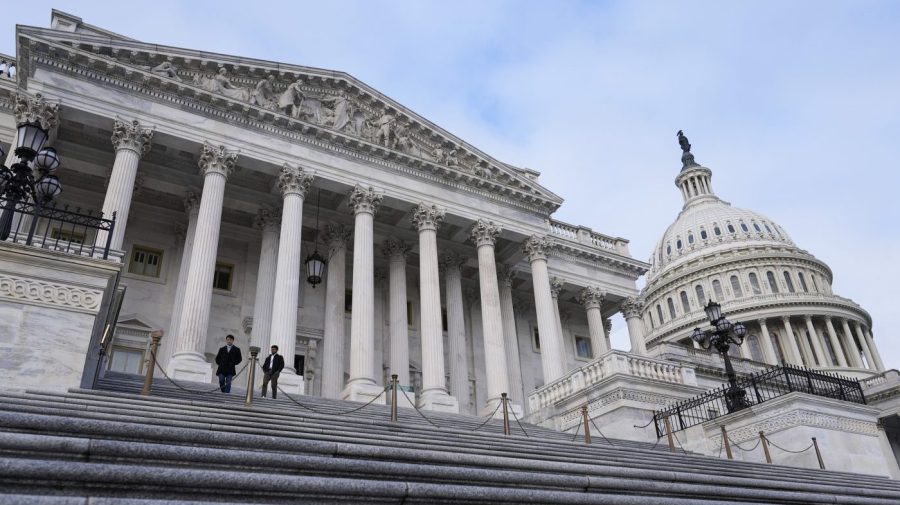Republican lawmakers in both chambers of Congress are competing to push forward key elements of former President Donald Trump’s agenda, highlighting the ongoing influence of the former president within the GOP. This race to implement Trump’s policy priorities comes as the party seeks to solidify its platform ahead of the 2024 elections.
Key Developments
1. Senate Budget Committee advances reconciliation blueprint
2. House Republicans work on comprehensive package
3. Disagreements over strategy and scope
Senate Moves First
The Senate Budget Committee, led by Chairman Lindsey Graham (R-SC), has announced plans to mark up the Fiscal Year 2025 budget resolution during the week of February 10th. This move initiates the reconciliation process to fund key components of Trump’s agenda, including:
- $150 billion for border security
- Similar amount for defense spending
- Funds for completing the border wall
- Hiring additional ICE agents
- Expanding detention capacity
Senate Republicans are opting for a two-bill strategy, with the first focusing on border security, energy independence, and defense. A second bill, expected later this year, will address more complex issues such as extending the 2017 tax cuts.
House Republicans Face Delays
Meanwhile, House Republicans remain divided over their own budget blueprint, causing delays in progress on a comprehensive package. Speaker Mike Johnson has advocated for a single “all-in-one” bill, contrasting with the Senate’s approach. House Republican leaders had outlined a timeline for their single-bill approach, aiming to have the package on Trump’s desk before May. This timing would fall within the first 100 days of Trump’s potential second term.
Competing Strategies
The race between the chambers highlights differing strategies within the Republican Party:
1. Senate’s two-bill approach: Seen as a way to secure quick wins on border, defense, and energy spending.
2. House’s comprehensive bill: Viewed as the best way to ensure as much of the Republican agenda is enacted as possible, including the extension of the 2017 Trump tax cuts.
Trump’s Influence
The push to advance Trump’s agenda underscores his continued influence within the Republican Party. Many of the proposed policies align with Trump’s “Agenda 47,” a collection of formal policy plans that would rely heavily on executive orders and expanded executive power.
Democratic Response
Democrats have expressed concerns about the expansive nature of these proposals. The Center for American Progress, a liberal think tank, has outlined strategies to protect American democracy in response to these developments.
Potential Impact
The outcome of this legislative race could have significant implications for:
1. Immigration policy
2. Defense spending
3. Energy policy
4. Tax policy
5. Executive power
Background
This push to advance Trump’s agenda comes in the context of ongoing investigations into Russian interference in the 2016 election and concerns about the integrity of the democratic process.
Conclusion
As both chambers of Congress work to advance Trump’s agenda, the outcome of this legislative race will likely shape the Republican Party’s platform and strategy heading into the 2024 elections. The competing approaches in the House and Senate reflect broader debates within the GOP about how best to implement Trump’s vision for the country.









